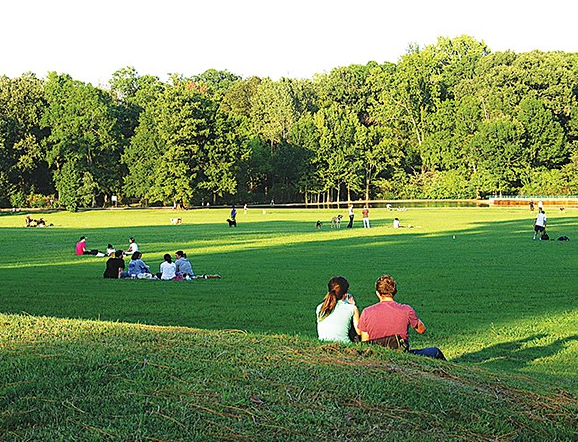The Overton Park Conservancy provided a “very early look” of the proposed new trails at Overton Park.
Officials said it would probably be several months before the trail opens to the public as they have to pull invasive plants and cut the trails.
In 2023 the conservancy and the Memphis Zoo worked together on a solution regarding parking on the Greensward. Historically, the zoo has used 12 acres of the Greensward for overflow parking. However, last year the zoo agreed to return this land to free public parkland under the conservancy’s management.
“The acreage, which was once slated to be home to a new Zoo exhibit space, has been behind a chain-link fence for years, disconnected from the 126 acres that the conservancy began managing in 2012,” the conservancy said in a statement. “As we prepare to remove the fence, the conservancy has enlisted a professional trail designer to create a new path that links up to the existing Old Forest trail system, maximizes views, and traverses the varied topography of the space.”
On Wednesday morning the Overton Park Conservancy hosted a walking press conference inviting media to be among the first to go behind the fence. The conservancy’s executive director Tina Sullivan and director of operations Eric Bridges hosted a walk on the proposed trail to share their expected plans for opening the space.
During the preview, Sullivan honed in on the natural beauty of the area as well as how carefully they’re going about planning and designing the trail system. The conservancy is putting a heavy focus on enhancing the innate characteristics such as log placement and sycamores.
“A place like this is so important in an urban area like Memphis,” Sullivan said. “To get another dozen acres of this kind of habitat and this kind of deep, immersive, nature experience for Memphians — it’s such a joy. It’s such a gift to the people of Memphis.”
Sullivan said they hope to preserve and steward the space for future generations. She added that the preservation also improves the park experience from all directions.
“If we were not to have gotten this particular tract of forest back then [the] viewshed from across the Greensward would have been compromised,” Sullivan said. “We would have potentially been looking at the backside of an exhibit or parking lot. We are especially grateful to the zoo that they saw the benefit of preserving this tract of land and the conservation value. We have a lot of opportunities to work together to research [and] study what’s back here and how to preserve it for future generations.”
Bridges said they will soon be starting the process of invasive removal, and as a part of their grant from the U.S. Department of Housing and Urban Development a team from Nashville will begin the process of an initial reduction.
“It’s not a one and done,” Bridges said. “The goal is whenever you remove something you create a growing space. Something was there and something’s going to fill that space. It’s really critical that you guide the next invasive.”
Bridges added it will be their “test ground” for an ecological restoration strategy.
“We’re good at the removal business. Now we’re going to get into the restoration business, which is that next step,” Bridges said.
This restoration process will likely include replanting and seeding and “guiding the forest” as Bridges put it.

